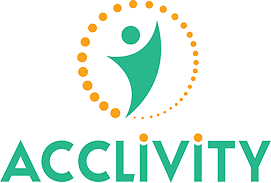As the year draws to a close, higher education institutions face a crucial period of reflection and planning. For administrators and faculty alike, this is an opportune time to evaluate the goals set at the beginning of the year, assess their outcomes, and chart a new course for the upcoming year. By carefully considering what worked, what didn’t, and what can be improved, academic leaders can set the stage for continued success.
Evaluating Institutional Goals
The end of the year offers a natural moment to step back and review the goals that were established at the start. It’s essential to take a comprehensive approach, examining not just the outcomes, but also the processes and strategies that led to those results.
- Assess goal achievement: Determine which goals were met, which fell short, and why. Understanding the factors that contributed to success or failure is key to setting realistic and achievable objectives for the future.
- Review strategic initiatives: Evaluate the effectiveness of initiatives implemented to achieve these goals. Were resources allocated efficiently? Did the strategies align with the institution’s mission and values?
- Gather feedback: Solicit input from faculty, staff, and students to gain a fuller perspective on what worked and what didn’t. This feedback can be invaluable in shaping future goals.
Setting New Goals for the New Year
Once the evaluation process is complete, the focus shifts to setting new goals for the upcoming year. This planning stage is crucial for ensuring that the institution continues to grow and adapt in an ever-changing academic landscape.
- Prioritize key areas: Based on the evaluation, identify the most critical areas for improvement or expansion. Whether it’s increasing student engagement, enhancing faculty development, or improving administrative processes, prioritizing these areas will guide resource allocation and strategic planning.
- Set measurable objectives: Ensure that the new goals are specific, measurable, attainable, relevant, and time-bound (SMART). Clear objectives help track progress and keep the institution focused throughout the year.
- Align with long-term vision: New goals should support the institution’s broader mission and long-term vision. Aligning short-term objectives with long-term aspirations ensures that every effort contributes to the institution’s overall growth.
For professors and administrators, the process of setting and achieving institutional goals is closely tied to personal and professional development. Academic career coaching can play a pivotal role in helping academic leaders align their individual aspirations with the institution’s objectives.
- Clarify personal career goals: Academic career coaching assists in identifying personal strengths and areas for development, ensuring that individual career goals complement institutional priorities.
- Develop leadership skills: Coaches provide valuable insights into effective leadership, helping administrators lead their teams more effectively in achieving institutional goals.
- Enhance work-life balance: By addressing personal career challenges, coaching helps faculty and administrators maintain a healthy work-life balance, which is essential for sustained success.
As you reflect on the past year and set new goals for the future, consider the benefits of academic career coaching to support your personal and professional growth. Whether you’re seeking to advance your career in academia or enhance your leadership skills, academic career coaching offers the guidance you need to align your aspirations with institutional success.
Start the new year with a clear vision and a solid plan—Contact us today to schedule a consultation and take the next step in your academic journey.

